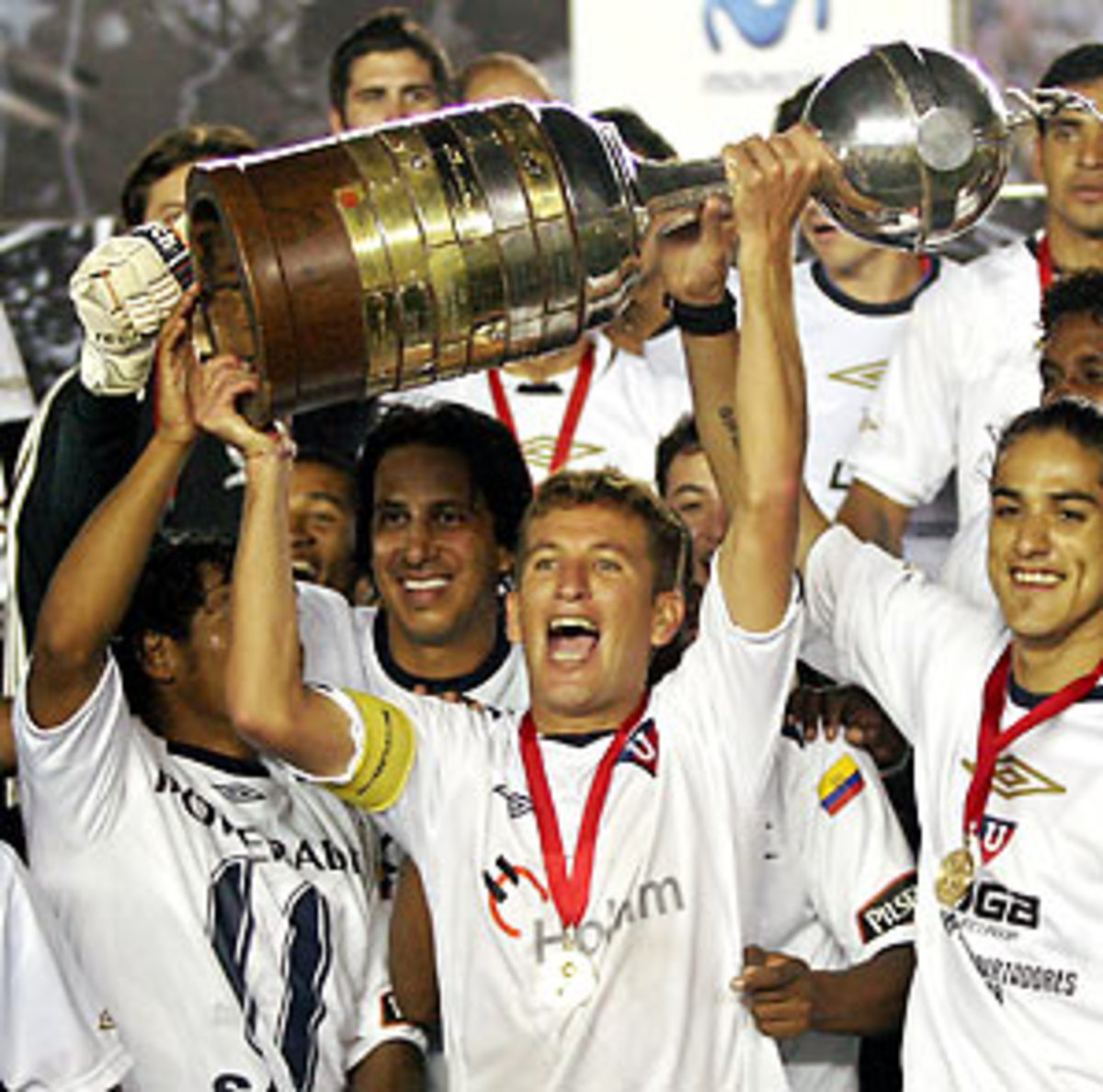Liga's win is one for all Ecuador
Liga's title victory wasn't only a magnificent achievement for the club, but also for more than 13 million Ecuadorians, as it was the first major international title ever won by the nation.
To put things into perspective, Liga didn't even manage to advance from the group stage of the competition last year, but all of a sudden swept away all opposition on its way to a historic title triumph.
And what a triumph it was. The Copa Libertadores has traditionally treated fans to top-class title-deciders in the past, but none could be compared to the extraordinary set of events that occurred this week.
In the first leg in Quito, Liga completely outplayed Fluminense with outstanding attacking soccer, and although it should have won by a huge margin, it only managed to take a 4-2 victory into the return leg in Rio de Janeiro. But it was still a substantial advantage to close in on the title.
A week later at Rio's cavernous Maracanã, Liga wasn't only up against a rejuvenated Fluminense squad, but a hostile home crowd of 90,000 that made things extremely difficult.
It seemed too much for a team like Liga to handle, and although the Ecuadorians got an early boost from Luis Bolaños, they were dominated and went on to lose an intense encounter 3-1 thanks to a hat trick of goals from outstanding Fluminense midfielder Thiago Neves.
In extra time, both teams had chances to win the match, but Liga came closest, and should have snatched a late win when Argentine striker Claudio Bieler found the back of the net with a superb header. However, the goal was disallowed by referee Héctor Baldassi for an nonexistent offside infringement (Bieler was clearly onside).
In the penalty shootout that added even more suspense to the final, there was only ever going to be one winner. Veteran goalkeeper JoséFrancisco Cevallos, who was a losing finalist of the '98 edition of the Copa Libertadores with Barcelona of Guayaquil, made three stops, enough to give Liga a 3-1 win and the much sought-after title.
Much like Once Caldas in '04, Liga's title triumph was the culmination of more than four months of dedication, hard work, and determination, as well as a great deal of good fortune. Los Albos finished second to Fluminense in the group stage of the competition, and many were unsure how they would fare in the knockout rounds.
Liga, only the third team from outside Brazil and Argentina to lift the Copa in 17 years, struggled but still managed to edge three-time champions Estudiantes 2-1 on aggregate. They followed that with a penalty shootout defeat of a much fancied San Lorenzo side, eliminated Club América of Mexico on the away-goals rule in the semis and, finally, overcame Fluminense in another penalty shootout in the finals. Some might say it was luck, a cushy draw or whatever -- what everyone can agree to is that Liga gave each team it faced a run for its money and ended up on top.
Although Liga's title run has much to do with the individual talent of players like Cevallos, Bolaños, Joffre Guerrón and inspirational captain Patricio Urrutia, its success was evidently based on a team effort.
Liga's Argentine coach, Edgardo "El Patón" Bauza, is well known for his work ethic, and since joining the club from Colón de Santa Fe in '06, he has enmeshed that into this Liga side. He was well aware of the principal characteristics of the typical Ecuadorian soccer player: speed, power, good technique and a will to learn, and because of his wide knowledge of South American soccer, he was able to transform a set of capable players (the current backbone of the Ecuadorian national team) into a championship-winning side.
Unlike Brazil, which constantly produces world-class players, Ecuadorian soccer has struggled for household names over the years, which has inevitably led to a strong collective identity in its own domestic league.
That pride can also be noticed in the national team, which was, until recently, considered an easy opponent. Now, however, Ecuador has become one of the stronger nations of the continent (last month it held the mighty Argentina to a 1-1 draw in a World Cup qualifier in Buenos Aires).
Since the last decade, Ecuadorian soccer has improved a great deal, and two successive World Cup appearances and its first international trophy suggest that many more title successes are likely to follow in future.
Next up for Liga de Quito is the Club World Cup in Japan in December. There, it will have the opportunity to test its luck against the best clubs from around the world, and possibly set up an enticing title showdown with European champion Manchester United. After its spectacular title run in the Libertadores, another shocker isn't out of the question. Not by a long shot.





